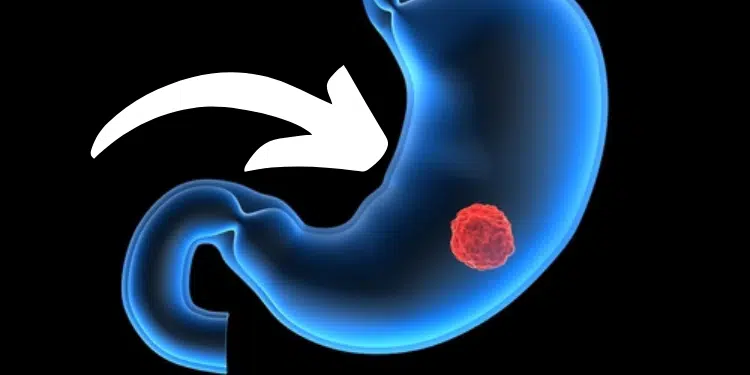Ignoring persistent gastric discomfort can lead to devastating consequences.
For many, symptoms like heartburn or acid reflux seem minor, but they could be masking a more serious condition.
Stomach cancer, often misinterpreted as simple gastric acid issues, can spread rapidly and is frequently diagnosed too late to be effectively treated.
A Real-Life Warning
The case of Jau Rensberg, an American patient, highlights the importance of recognizing the signs early.
Jau experienced severe gastric acid issues for an extended period but dismissed them as nothing serious.
It wasn’t until his wife insisted he see a doctor that his condition was thoroughly investigated.
Initially treated with heavy medications for acid reflux, his symptoms only worsened.
Finally, he underwent an endoscopy, a nonsurgical procedure to examine the stomach and digestive tract.
The results were alarming – Jau was diagnosed with stomach cancer. Fortunately, his cancer was detected early enough to allow for surgery, which likely saved his life.
The Hidden Danger of Stomach Cancer
Stomach cancer, also known as gastric cancer, is particularly dangerous because its early symptoms often mimic less severe digestive issues, such as:
- Persistent heartburn or acid reflux
- Difficulty swallowing (dysphagia)
- Unexplained nausea or vomiting
- Loss of appetite or unintentional weight loss
- Bloating after meals
These symptoms are easily overlooked or attributed to common conditions like gastroesophageal reflux disease (GERD). Unfortunately, this delay in diagnosis means that only 20% of stomach cancer patients survive, as the disease is often detected in its advanced stages.
Why Stomach Cancer Spreads Quickly
Stomach cancer is aggressive and can spread rapidly to other parts of the body, including the liver, pancreas, and lymph nodes. This makes early detection crucial for survival. Factors that contribute to its fast progression include:
- Late Detection: Symptoms often don’t appear until the cancer has advanced.
- Proximity to Other Organs: The stomach is near vital organs, allowing cancer cells to spread quickly.
- Lack of Awareness: Many people ignore or misinterpret the early warning signs, delaying treatment.
The Importance of Early Diagnosis
As Jau Rensberg’s case shows, early detection can make all the difference. He underwent an endoscopy, a simple but critical procedure that allowed doctors to identify the cancer in time for surgery.
What Is an Endoscopy?
An endoscopy is a nonsurgical procedure in which a thin, flexible tube with a camera is inserted into the digestive tract to examine the stomach lining and detect abnormalities. It’s a vital tool for diagnosing stomach cancer in its early stages.
Who Should Get an Endoscopy?
- People with persistent acid reflux that doesn’t respond to medication
- Individuals with a family history of stomach cancer
- Anyone experiencing unexplained weight loss, severe bloating, or difficulty swallowing
How to Reduce Your Risk of Stomach Cancer
While stomach cancer cannot always be prevented, certain lifestyle changes can help lower your risk:
- Maintain a Healthy Diet:
- Eat plenty of fresh fruits and vegetables.
- Avoid processed and smoked foods, which contain nitrates linked to stomach cancer.
- Quit Smoking:
Smoking increases your risk of developing stomach cancer. - Limit Alcohol Consumption:
Excessive alcohol intake can damage the stomach lining and increase cancer risk. - Treat Infections Promptly:
Helicobacter pylori (H. pylori) infections are a significant risk factor for stomach cancer. Get tested and treated if necessary. - Regular Checkups:
If you experience persistent gastric discomfort, consult a doctor. Don’t ignore symptoms like chronic acid reflux, bloating, or difficulty swallowing.
Stomach cancer is a silent but aggressive disease that can spread rapidly if left untreated. As Jau Rensberg’s experience shows, symptoms like acid reflux and swallowing difficulties should never be ignored.
Early detection through procedures like endoscopy can save lives, but awareness and action are key.
If you or someone you know is struggling with persistent gastric issues, don’t wait – seek medical advice.
Understanding the risks and recognizing the signs early could make all the difference in protecting yourself from this life-threatening disease.
Share this article with your loved ones and encourage them to take their health seriously – it could save a life.

